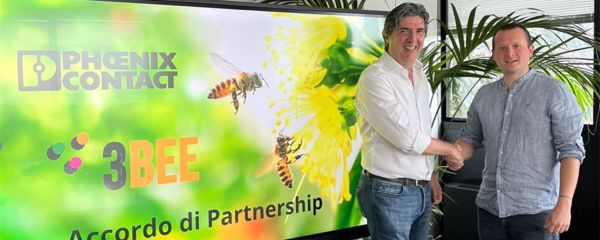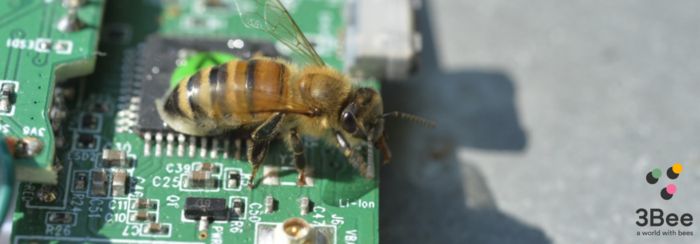Monitoring, protection, and restoration of biodiversity in Italy

Project goal
The Italian subsidiary is realizing this project together with 3Bee – a leading company in the field of sustainability. The focus is on the maintenance and growth of an oasis of biodiversity. Measures include planting a nectar forest with 250 nectar trees, setting up five technological beehives, building houses for mason bees, butterflies, and ladybugs, and using IoT sensors to monitor the local flora and fauna.
Milestones
- Cooperation with 3Bee
- Implementation of various measures
- Organization of training courses
of carbon dioxide is absorbed by 250 nectar-producing trees
of nectar is produced per year

A project with long-term prospects
With this project, Phoenix Contact Italy is making a long-term commitment to ecological sustainability and the protection of biodiversity. As part of the partnership with 3Bee, the subsidiary has committed to planting and maintaining around 250 nectar-bearing trees in its oasis by the end of 2023. These trees will absorb more than 13 metric tons of carbon dioxide and produce around 208 kg of nectar for pollinators each year. This tangible and measurable project is a concrete example of sustainability in action.
The individual project steps
1st year (2023):
Creation of a nectar forest to promote the habitat and nutrition of native and wild pollinators. Planting of 250 nectar-bearing trees.
2nd year (2024):
Installation of five beehives with 3Bee HiveTech* technology, i.e., beehives equipped with biometric sensors that will provide useful data for the practical and effective measurement of bee health.
*HiveTech is an IoT system that calculates the health of an area’s ecosystem by analyzing the sound, temperature, humidity, and weight of beehives.
3rd year (2025):
Installation of small houses (PollyHouses) for pollinators (mason bees, butterflies, and ladybugs). The houses are important refuges for these pollinators, which are needed for plant reproduction and biodiversity, as well as bioindicators for the ecosystem, i.e., guardians for the health of the environment. At least one hectare of land will be regenerated.
Courses on biodiversity and the importance of pollinators are also being organized. Educational trails through the oasis will introduce visitors to the world of pollinators; educational signs will provide further information.
4th year (2026):
Construction, management, and data analysis of a biological lake (10 m²) – wildlife sanctuary. The bio-lake was created to promote the diversity of wildlife and the preservation of the ecosystem, unlike conventional artificial lakes or water reservoirs. The bio-lake is the largest study and research project on bees, pollinating insects, and biodiversity, and provides valuable information on the health of the ecosystem, the success of ecological restoration, and its effectiveness as a wildlife habitat.
Together with 3Bee, we believe in the importance of biodiversity and in all initiatives that benefit our planet to ensure a living environment for future humanity. The creation of our oasis of biodiversity is a concrete example of our commitment to ecological sustainability.
Connect with us

This might also interest you

France creates low-emission mobility solutions for the future
Employees use bicycles and an electric vehicle to reduce their carbon footprint.

Modernization of the power supply of the Sarotlahütte mountain hut
Country-specific and benefitting society.

100 trees for 100 years in Poland
Community action for the climate.

